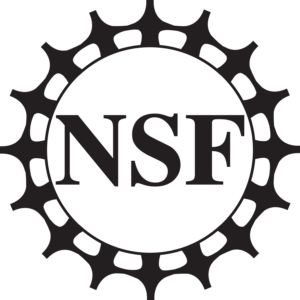Welcome to the Portal to the Public Network

Why Portal to the Public?
- The Portal to the Public approach is a tested strategy for connecting public audiences with the scientists working in their communities.
- New sites join an active community of practitioners dedicated to sharing ideas and strategies for scientist-and-public engagement.
- Portal to the Public activities can build and strengthen long-term relationships among regional STEM-focused institutions.
- The professional development elements, along with other components of the framework, can be used to support a wide variety of institutional needs and goals.
- Member sites receive individualized support from the PoPNet team at the Institute for Learning Innovation and other experienced PoPNet Faculty.
- Members also have access to shared resources including access to the Portal to the Public Implementation Manual, an online community, and opportunities for in-person meetings which support ongoing collaboration and connection between sites.
History
Portal to the Public looks different at each institution, but all are designed around the same guiding framework, described visually in the graphic below. When building a new program, institutions go through a guided conceptual planning process that begins by identifying desired impacts, as well as institutional strengths and resources. This guides how an institution develops their program components (relationships, professional development, and face-to-face public programs), designing and selecting approaches to meet their desired impacts. The framework is specific but flexible, allowing each institution to select and scale the strategies best suited to their unique informal learning environment.

In some cases, an institution may already have established relationships with local (or internal) scientists or industry professionals, while other institutions will develop a plan to build new relationships with local universities or research centers. All institutions create professional development experiences for the scientists they work with, but those experiences range from half-day workshops to a three-month long series of workshops and activity development support. Public programs vary widely between sites, especially since many incorporate scientists and professional development into existing programming. Each institution chooses which public program format(s) will create an engaging event, bringing scientists and visitors together in face-to-face interactions that encourage rich dialogue.
Subsequent funding from the Institute of Museum and Library Services (IMLS) and NSF have allowed for expansion of the Network to new sites, including new institution types such as zoos, aquariums, natural history museums, botanical gardens, universities, and research groups.
Projects
- Current projects:
- Partnerships for Broader Impact Design
- Portal to the Public: Diversifying the Framework, Expanding the Network
- NASA at My Library
- “On the Spot” Assessment
This section is in-progress: more information coming soon. For immediate questions regarding Portal to the Public Network projects, email Anna at anna.johnson@freechoicelearning.org.

This material is based upon work supported by the National Science Foundation. Any opinions, findings, or recommendations expressed in this material are those of the authors and do not necessarily reflect the views of NSF.

This project has been made possible by a grant from the U.S. Institute of Museum and Library Services.

Portal to the Public is facilitated by the Institute for Learning Innovation.
